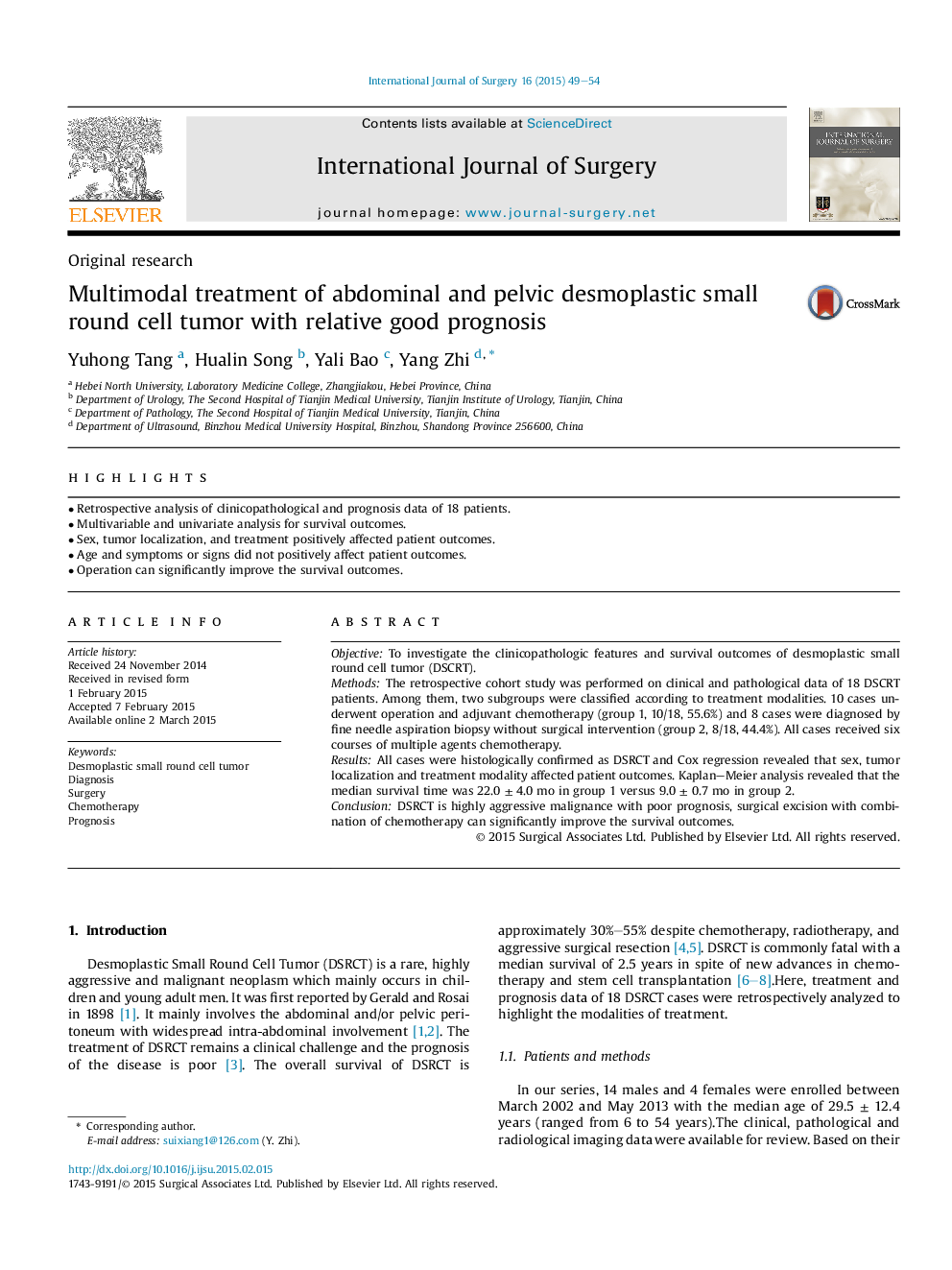| Article ID | Journal | Published Year | Pages | File Type |
|---|---|---|---|---|
| 4285997 | International Journal of Surgery | 2015 | 6 Pages |
•Retrospective analysis of clinicopathological and prognosis data of 18 patients.•Multivariable and univariate analysis for survival outcomes.•Sex, tumor localization, and treatment positively affected patient outcomes.•Age and symptoms or signs did not positively affect patient outcomes.•Operation can significantly improve the survival outcomes.
ObjectiveTo investigate the clinicopathologic features and survival outcomes of desmoplastic small round cell tumor (DSCRT).MethodsThe retrospective cohort study was performed on clinical and pathological data of 18 DSCRT patients. Among them, two subgroups were classified according to treatment modalities. 10 cases underwent operation and adjuvant chemotherapy (group 1, 10/18, 55.6%) and 8 cases were diagnosed by fine needle aspiration biopsy without surgical intervention (group 2, 8/18, 44.4%). All cases received six courses of multiple agents chemotherapy.ResultsAll cases were histologically confirmed as DSRCT and Cox regression revealed that sex, tumor localization and treatment modality affected patient outcomes. Kaplan–Meier analysis revealed that the median survival time was 22.0 ± 4.0 mo in group 1 versus 9.0 ± 0.7 mo in group 2.ConclusionDSRCT is highly aggressive malignance with poor prognosis, surgical excision with combination of chemotherapy can significantly improve the survival outcomes.
